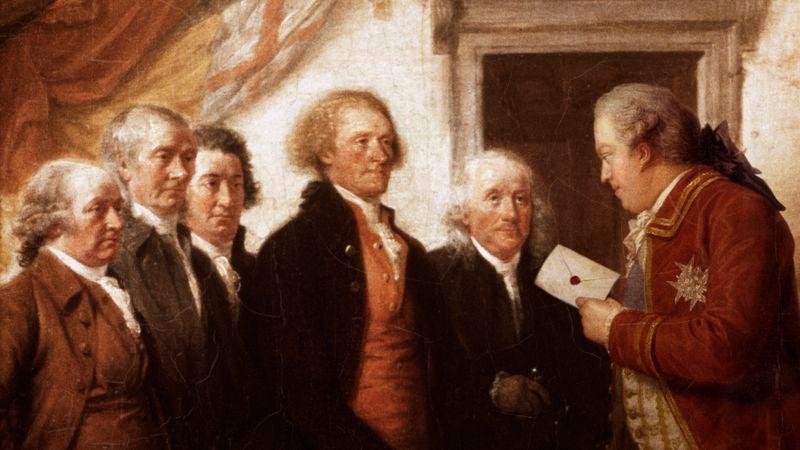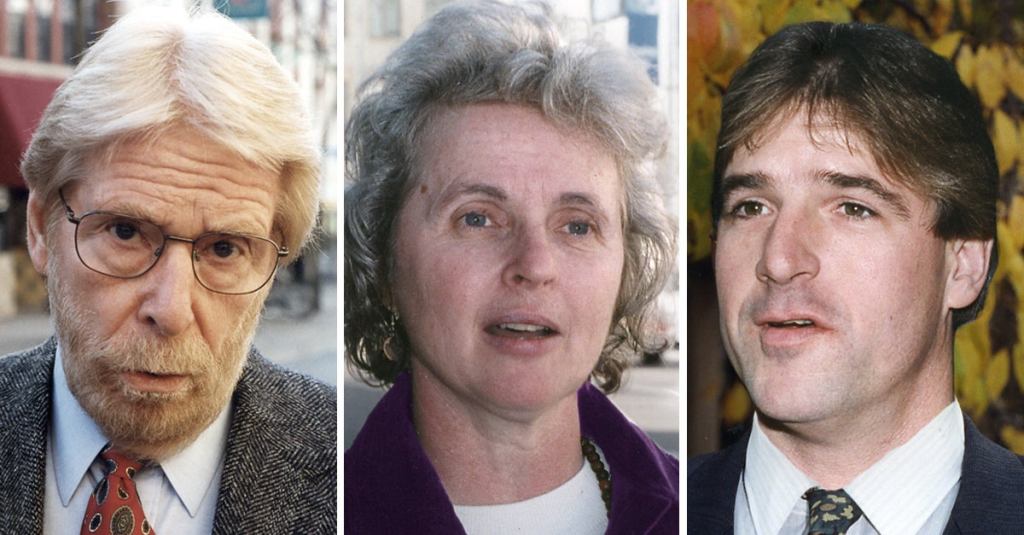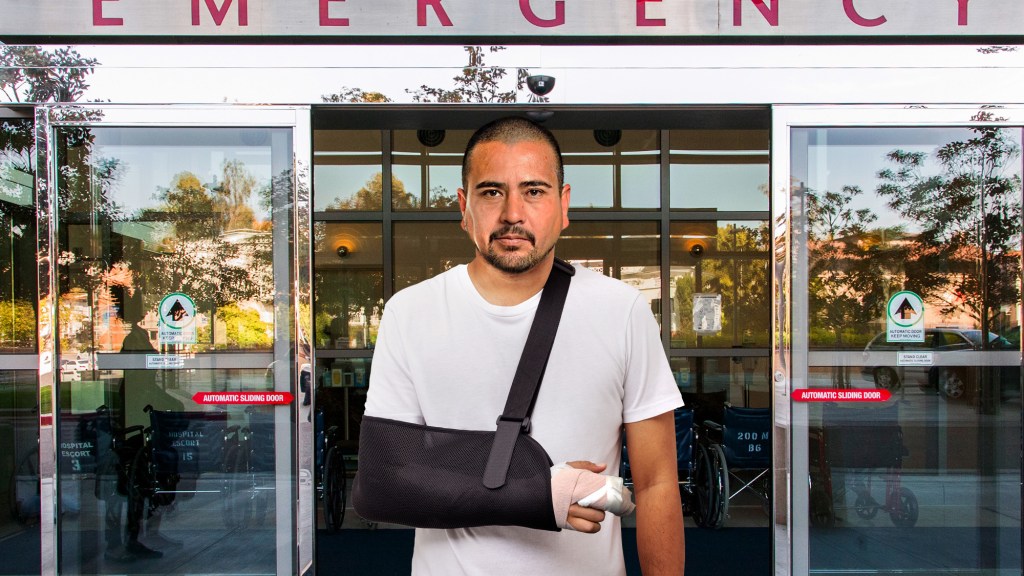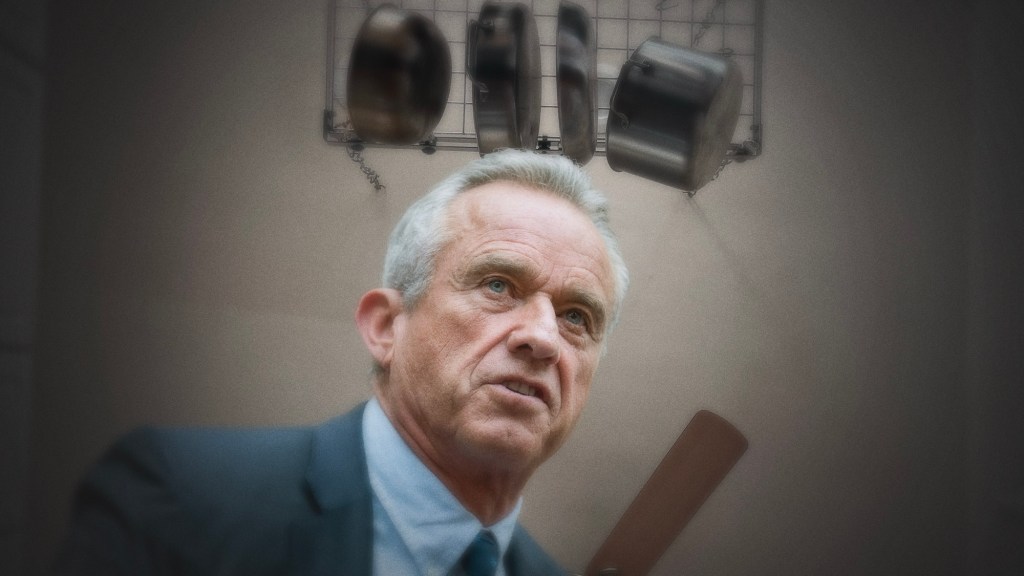WASHINGTON—Drawing on a trove of letters, diaries, and itemized receipts recently donated by private collectors, historians from Georgetown University published new evidence on Wednesday of the Founding Lobbyists’ intense behind-the-scenes campaign to influence the U.S. Constitution.
The documents reveal a concerted effort by America’s earliest corporate power brokers to curry favor with the Constitution’s framers during the 1787 Constitutional Convention all the way through the ratification of the Bill of Rights in 1791, with delegates having been pampered with gifts such as expensive pocket watches, casks of fine Caribbean molasses, and extravagant quail-hunting trips to the Province of Massachusetts Bay.
“It’s now becoming clear just how much the final language of the Constitution was shaped by, say, complimentary jugs of quality mead or all-expenses-paid gambling jaunts aboard company-owned schooners.”
“What we’ve learned is that these men—acting on behalf of cotton, barrel, and livestock interests, among many others—played a pivotal role in crafting the Constitution as we know it,” said professor J. Wilson Adler, noting that, for example, the Third Amendment barring the nonconsensual quartering of soldiers was only added after James Madison was treated to a feast of succulent brisket and stewed pumpkin care of the powerful boardinghouse industry. “For all the Founding Fathers’ brilliance and vision, it’s now becoming clear just how much the final language of the Constitution was shaped by, say, complimentary jugs of quality mead or all-expenses-paid gambling jaunts aboard company-owned schooners.”
“These lobbyists knew full well that if you wanted first-rate treatment for your patrons in Providence or Charleston, you made sure that gilded ivory walking canes found their way to the delegates gathered in Philadelphia,” he added.
Evidence also suggests that the original lobbyists were skilled in dampening opposition to their clients’ agendas. Recovered ledgers revealed that an early attempt at universal healthcare—via a welfare clause in Article IV—was voted down after an advocate for the Apothecaries Guild procured front-row duel tickets for the entire Pennsylvania delegation.According to witness accounts of the time, the Constitution’s authors were regularly spotted in the colonies’ most exclusive taverns, where a different member of the wax or beaver pelt lobbies would cover their exorbitant three-figure tabs and lavish them with exquisite silk garments and spices from beyond the Orient. Preserved woodcuts depict a number of Founding Fathers relaxing on the palm-lined beaches of Hispaniola as they and their families enjoyed luxury accommodations courtesy of the sugarcane industry.
In addition, personal letters from Thomas Paine and John Adams credit the introduction of the Second Amendment to representatives of the Musket Manufacturers Association, which funded a series of vicious attack broadsheets targeting anyone who spoke out against it, accusing critics of being tyrannical monarchists who harbored a secret plot to seize the colonies’ flintlocks.
“Of course, the grandiose spending and backroom deals at the Constitutional Convention did lead to some scandals, like Benjamin Franklin being arrested in a courtesan house with a saddlebag of pure snuff that had been provided by tobacco growers,” said Adler, adding that there was also widespread public outcry following revelations that the Slave Traders of America had donated “1,500 prize hogs and 250 stout men of West African stock” to certain delegates in exchange for an abolition amendment being dropped. “Despite these unseemly episodes, Founding Fathers like William Livingston and Gouverneur Morris actually went on to become Founding Lobbyists themselves, using their insider knowledge to command thousands of gold guineas from the blacksmith and whale oil industries.”
“Indeed so much of our nation’s identity can be traced back to this small group of well-connected lobbyists,” he continued. “Their signatures may not be on the document, but they left a legacy that remains with us to this very day.”







